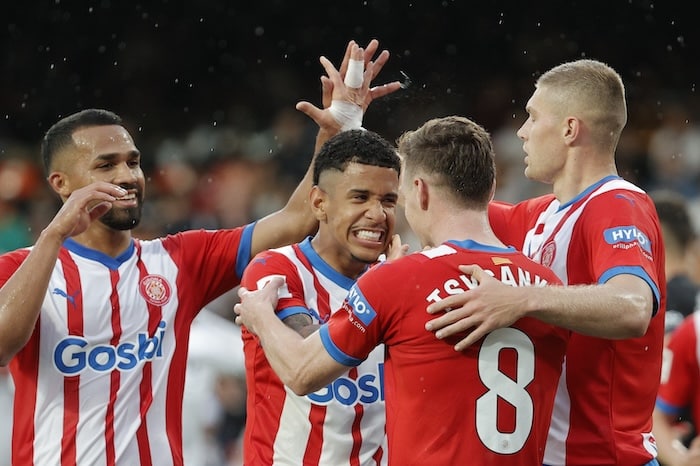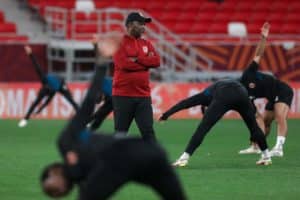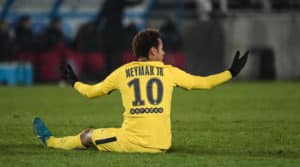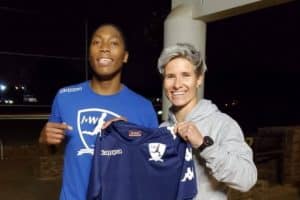Girona have had a stunning season in Spain’s La Liga, but there is more to this club than meets the eye, writes Nick Said.
Girona are playing in only their fourth season in LaLiga and have a tiny 14 600-seater stadium, yet have proved
major disruptors in this campaign and at one stage looked well on course to challenge Real Madrid and Barcelona for the title.
Those hopes have faded slightly for coach Míchel Sánchez’s side, but barring a dire end to the season, they will qualify for the UEFA Champions League in the next campaign.
So how have they risen from no- hopers to being among Spain’s elite clubs? And this from a team that has spent most of its history playing in the third and fourth tiers in the country’s football pyramid.
To understand that, we need to learn a little history … and geography. The city of Girona is about an hour’s drive north of Barcelona and in the same Cataluña region. This is the same province that Manchester City manager Pep Guardiola hails from.
The big difference is that the entire 90 000-strong population of Girona would fit into Barcelona’s Camp Nou stadium with plenty of seats to spare.
The club won promotion to LaLiga for the first time in their long history following the 2016/17 season, and ahead of the new campaign, the City Football Group (CFG), which owns Manchester City and several other teams around the world, acquired a 44.3% ownership stake.
Another 44.3% stake was held by Girona Football Group, which is led by Pere Guardiola, the brother of Pep. Pere would later be chairman of the club and led them back into LaLiga following a relegation in 2018/19. Talk about keeping it all in the family.
City could not purchase more than a 50% stake in Girona for a very good reason. If anyone holds more than that in a club it is considered a controlling stake and UEFA rules are very clear – two clubs with the same owner cannot compete in the same competition.
That would have meant that if Girona did qualify for the Champions League next season, the CFG would only have been able to enter one of its teams. But with their lesser stake there should be no issues.
CFG have obviously placed the club on a stable financial footing, but being part of a group of clubs has additional benefits – Manchester City have loaned Brazilian right-back Yan Couto (right) to the club, while French outfit Troyes, another CFG team, have loaned teenage winger Sávio, also from Brazil, to Girona.
They have also used Pere Guardiola’s extensive contacts as a leading player agent to bring in Pablo Torre and Eric García from Barcelona.
They have relied heavily on the goals from Ukraine forward Artem Dovbyk, while Sávio has also been superb and experienced Dutch defender Daley Blind has been a rock at the back.
But perhaps their biggest asset this season has been coach Míchel. He has knitted everything together and got a squad of decent players to over-perform and create a dream that has been likened to Leicester City’s remarkable Premier League victory in England in 2015/16.
“It’s his third season with us now and I think the players now really understand what he wants, the style of play,” Girona CEO Ignasi Mas-Bagà told CNN.
“He wants to keep the ball – a lot of possession – and to score goals, and we’re the team that’s scored the most goals in the league. Positively, we can say that the job during the week [in training] is translated on the pitch with results.”
Mas-Bagà confirms Míchel and Pep Guardiola do talk about the team and having that insight has perhaps helped.
“They have a lot of similarities,” he says. “They speak the same language of football and I know they speak after some games and they get on very well.
“I think this is also very positive and I think Pep is an inspiration for Míchel.”
Spanish football pundit Semra Hunter believes Míchel deserves a lot of credit too, but says the forward-thinking approach of the club management has also been key.
“He’s won over the fans. He’s won over the board. He’s young, he’s intelligent, he’s ambitious, he’s driven. He’s incredibly good with his players,” Hunter said.
“He pays a lot of attention to detail as well: the fine tuning of what needs to happen during a game or in the lead-up to the game. He has a brilliant group of players that are very much a collective. There is no superstar in the side – they very much are a strong team as a unit.
“I think part of it has to do with the fact that the board have been so incredibly intelligent in listening to their manager and listening to what was needed and saying: ‘Right, let’s be really smart about how we go into the market in the summer, how we build a team. What specifically are the profiles of the players that we need?’”
With the club’s players gaining admirers across Europe, their biggest challenge may be holding on to them.
Midfielder Aleix García, one of the best players in LaLiga this season, is a target for Barcelona and has made it clear he would love to jump ship to Camp Nou.
There will always be the spectre of losing players to Manchester City as well, but for now they are just riding the crest of a wave and hoping it does not crash into the shore.
Photo by EPA/Manuel Bruque





